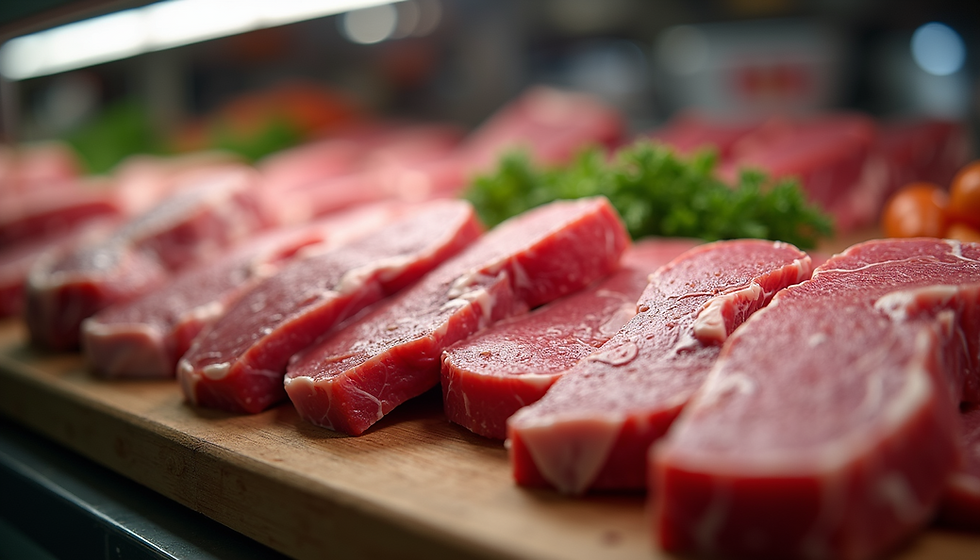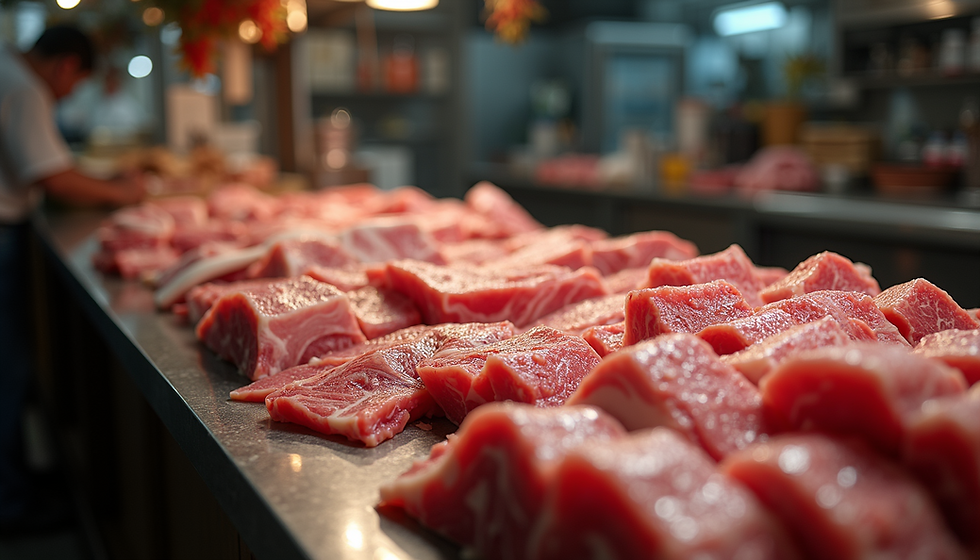Key Trends Shaping the Future of the Meat Wholesale Industry
- Team @ Ezy Click Answers
- Jun 11, 2025
- 3 min read
The meat wholesale industry is undergoing a transformation spurred by consumer demands, technological advancements, and sustainability concerns. Understanding these trends is essential for businesses looking to navigate the evolving landscape effectively. This post explores five critical trends shaping the future of the meat wholesale industry and offers actionable insights for industry stakeholders.
The Rise of Plant-Based Alternatives in Meat Wholesale
As more consumers embrace plant-based diets, the demand for meat alternatives is skyrocketing. This trend is not just a fad; it reflects a significant shift in consumer preferences driven by health-conscious choices and environmental concerns. According to a report by the Good Food Institute, the plant-based meat sector grew by 27% in the past year alone.

Meat wholesale businesses can respond to this trend by diversifying their product ranges to include plant-based options. Companies like Beyond Meat and Impossible Foods are already leading the charge. Wholesalers could partner with these brands or develop their own private label products to cater to this growing segment.
Improved Traceability and Transparency in Meat Sourcing
Consumers want to know where their food comes from, prompting meat wholesalers to invest in transparency and traceability. Technologies such as blockchain are being adopted to create secure supply chains that allow for real-time tracking of meat products from farm to table.

For example, major retailers are increasingly citing their sourcing practices as a selling point. Wholesalers can leverage this trend by implementing traceability systems that not only meet regulatory requirements but also align with consumer desires for ethical sourcing. Providing clear information about sourcing practices can foster trust and loyalty among customers.
Increased Demand for Sustainable Practices
Sustainability is becoming a central focus for consumers, and the meat wholesale industry is no exception. A Nielsen study reveals that approximately 66% of consumers are willing to pay more for sustainable products. This growing consciousness about environmental impact means that wholesalers need to adapt their practices.

Meat wholesalers can incorporate sustainable practices such as reducing food waste, optimizing energy use, and sourcing from local ethical farms. By promoting these practices, businesses can attract eco-conscious consumers while potentially lowering costs in the long run.
Digital Transformation and Tech Innovations
The digital landscape is rapidly evolving, and meat wholesalers must keep pace with these changes. Innovations such as e-commerce platforms, mobile apps, and artificial intelligence for inventory management are reshaping the industry.
Statistics show that online sales of meat and poultry are expected to grow significantly over the next few years. Wholesalers who invest in user-friendly e-commerce solutions can gain an edge in this competitive market.
Rest assured, implementing technology can also enhance operational efficiency. For instance, AI can help predict trends in demand, allowing businesses to manage their inventories more effectively and reduce waste. This adaptation is crucial, especially in the fast-paced global food service market.
Health and Safety Standards in Meat Processing
Health and safety regulations continue to evolve, especially in light of recent global events. The COVID-19 pandemic emphasized the importance of maintaining high health standards in meat processing and distribution. Wholesalers must stay updated on local and international regulations to ensure compliance and safeguard public health.
Investing in cleaning protocols and employee training can significantly mitigate risks. Additionally, adopting new technologies such as automated processing equipment can help maintain hygiene and efficiency.
Overall, meat wholesalers should take a proactive approach to health and safety by regularly reviewing their practices and adopting cutting-edge solutions.
The Future: Embracing Change and Innovation
As we look ahead, it is evident that adaptability will be key for the meat wholesale industry. The trends discussed highlight the importance of staying informed and being willing to pivot in response to changing consumer preferences and market conditions.
Wholesalers who embrace a combination of sustainability, technology, and transparency will be well-equipped to thrive in this future landscape. It’s not just about keeping up with trends; it’s about leading them.
With the right strategies in place, the future of the meat wholesale industry can align with the values of modern consumers while ensuring robust growth and continued relevance in a dynamic market.



Comments